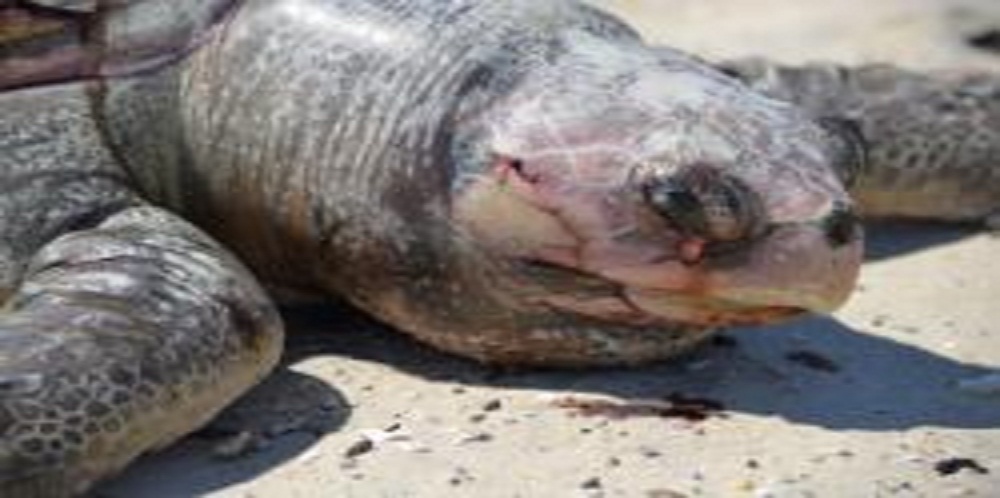Hundreds of fishers turned out for meetings on new regulations
Louisiana, Mississippi, Alabama – The Gulf of Mexico commercial shrimp trawl fleet is the target of increased law enforcement to ensure compliance with required Turtle Excluder Devices (TEDs). An estimated 200 vessels have been inspected this month by federal officials and 71 were either given warnings for TEDs problems discovered while docked, or violation notices for fishing with illegal gear that may result in fines or other penalties.
NMFS has begun a process to form new rules to protect sea turtles due to high numbers of strandings reported this year and last year. They intend to impose new rules on the Gulf shrimpers before shrimping begins in 2012. Click here for the NMFS proposal to improve sea turtle protections in the shrimp fishery.
“Hundreds or thousands of sea turtle deaths could have been prevented this year if NMFS had acted on the new rules it is now debating,” says marine biologist Chris Pincetich, Ph.D. with the Sea Turtle Restoration Project of the Turtle Island Restoration Network. “Shrimpers are disregarding laws to protect sea turtles from drowning when shrimp is caught, yet they continue to deny there is any problem.”
The fact that over a third of shrimpers are not following the law is an improvement over previous inspections. NMFS conducted inspections of TEDs in Louisiana last year and in Mississippi this year and found 90 percent of the TEDs were installed illegally and some had the sea turtle escape hatch in the TED sewn shut. Shrimpers out of compliance with the federal laws established in the early 1990s are linked by scientists to the recent increase in dead sea turtles on Gulf of Mexico beaches. Click here to download NMFS TED inspection reports obtained earlier this year that detail lack of TED compliance from August 2010 through April 2011 in Louisiana and Mississippi.
“Areas in Louisiana, Mississippi and Alabama need to close shrimping during sea turtle nesting migrations, reduce the size of their shrimp fleet, and restrict inshore shrimping, like Texas has, to save endangered sea turtles,” said Carole Allen, Gulf of Mexico Director for the Sea Turtle Restoration Project.
“Safe swimways for sea turtles, free from deadly shrimp trawling and poisonous offshore oil activities, must be created by NMFS to stop the continual slaughter of innocent sea turtles,” said Pincetich. “Baby sea turtles swim out and get caught in skimmer nets, and drown.”




